China’s Xi Jinping Travels to Russia for Victory Day

China’s Xi Jinping Travels to Russia for Victory Day
With 29 foreign leaders in attendance, Moscow is hoping to demonstrate that Western isolation efforts have largely failed.
Russian T-90M tanks drive across Palace Square in Moscow on May 3 during a rehearsal for Victory Day. Olga Maltseva/AFP via Getty Images
Welcome back to World Brief, where we’re looking at China’s “no limits” partnership with Russia, Pakistan vowing retaliation against India, and upcoming trade talks between Washington and Beijing.
Moscow’s RSVP List
Chinese President Xi Jinping flew to Moscow on Wednesday to begin a four-day state visit that will include attendance at Russia’s Victory Day parade on Friday. While the event’s official purpose is to commemorate the 80th anniversary of the end of World War II, the Kremlin is hoping that the presence of Xi and 28 other foreign leaders will demonstrate Russia’s efforts to fight Western isolationism amid its war in Ukraine.
Welcome back to World Brief, where we’re looking at China’s “no limits” partnership with Russia, Pakistan vowing retaliation against India, and upcoming trade talks between Washington and Beijing.
Moscow’s RSVP List
Chinese President Xi Jinping flew to Moscow on Wednesday to begin a four-day state visit that will include attendance at Russia’s Victory Day parade on Friday. While the event’s official purpose is to commemorate the 80th anniversary of the end of World War II, the Kremlin is hoping that the presence of Xi and 28 other foreign leaders will demonstrate Russia’s efforts to fight Western isolationism amid its war in Ukraine.
Ahead of the event, Russian President Vladimir Putin announced a unilateral three-day cease-fire in the war in Ukraine beginning Thursday. “Fire will be halted, but should the Kyiv regime fail to do the same and should it continue trying to strike our positions and facilities, then an appropriate response will be given immediately,” Kremlin spokesperson Dmitry Peskov said on Tuesday.
Ukrainian President Volodymyr Zelensky has dismissed the move as a “theatrical play” and instead called for a truce lasting at least 30 days that would halt strikes on civilian targets. He also warned the foreign leaders traveling to Moscow that Kyiv “cannot be held responsible for what happens on the territory of the Russian Federation” during Victory Day.
His warning came just a few days before Ukraine launched a massive overnight drone assault on Moscow, the third in as many days. According to Russia’s defense ministry, the country’s military has shot down more than 500 Ukrainian drones in the past 24 hours, and four major airports in Moscow were forced to close, affecting some 60,000 passengers. This included Serbian President Aleksandar Vucic, who was already facing heavy European criticism for attending the parade; his plane was forced to reroute to Baku, Azerbaijan, before finally arriving in Russia.
With 29 world leaders in attendance, Friday’s parade will feature the largest foreign delegation at the Red Square event since Russia launched its full-scale invasion of Ukraine in February 2022. It will also be the first time since 2020 that the Chinese People’s Liberation Army has sent an honor guard to participate in the ceremony.
Kyiv has repeatedly accused Beijing of aiding Russia’s war efforts, allowing Chinese nationals to fight for Moscow, and fostering a close relationship with Putin. China maintains that it is a neutral party in the war and supports a peaceful resolution. This week’s trip is Xi’s 11th visit to Russia since becoming president, more than to any other country; in September, Putin is set to visit Beijing to mark Japan’s World War II surrender.
Since the conflict began, Russia has prioritized its “no limits” partnership with China to counter Western isolation. Bilateral trade reached $245 billion in 2024, 66 percent more than before the war began in 2021. This week, Xi and Putin are also expected to sign numerous cooperation agreements and discuss the Power of Siberia 2 gas pipeline, which would carry around 50 billion cubic meters of gas a year from Russia to China.
“Together we must foil all schemes to disrupt or undermine our bonds of amity and trust,” Xi wrote on Wednesday in regard to China-Russia relations. Xi is expected to hold talks with Putin on Thursday.
Today’s Most Read
- Is It Too Late to Slow China’s AI Development? by Rishi Iyengar and Lili Pike
- The Australian Election Wasn’t Just About Trump by Amelia Lester
- A Massive Shared Military Deal May Be Europe’s Future by Elisabeth Braw
What We’re Following
“Act of war.” India carried out strikes on what it said was “terrorist infrastructure” in Pakistan’s Punjab and Islamabad-controlled Jammu and Kashmir regions early Wednesday local time. The attacks, which included missile strikes on two mosques, killed more than two dozen people, including children. India’s Defense Ministry said it targeted at least nine locations where “terrorist attacks against India have been planned.” However, Pakistan has rejected those claims, calling the allegations “unsubstantiated and unreasonable” and saying six civilian areas were targeted.
India launched the operation in retaliation for a deadly shooting in Indian-controlled Kashmir last month that killed 25 Indian civilians and a Nepali tourist. New Delhi has accused Islamabad of supporting militants—such as the Kashmir Resistance group, which claimed responsibility for the Kashmir attack—but Pakistan denies these allegations.
In response to India’s strikes, Islamabad claimed on Wednesday to have shot down five Indian fighter jets and engaged in artillery fire against Indian positions along the Line of Control. “Pakistan has every right to give a robust response to this act of war imposed by India, and a strong response is indeed being given,” Pakistani Prime Minister Shehbaz Sharif said. India has not commented on Pakistan’s claim about the destroyed aircraft, but locals report the downing of at least three planes in India-controlled territory, and New Delhi has since warned that “if Pakistan responds, India will respond.”
This has been the worst clash between the two historic adversaries in decades, and many fear it may not be over yet. “These are two strong militaries that, even with nuclear weapons as a deterrent, are not afraid to deploy sizable levels of conventional military force against each other,” FP columnist Michael Kugelman told The Associated Press. “The escalation risks are real.”
However, FP columnist Sumit Ganguly remains optimistic that neither country will escalate to a nuclear exchange. “Neither India nor Pakistan wants to be labeled as the first violator of the post-Hiroshima nuclear taboo,” Ganguly wrote. “Further, the use of nuclear weapons would lead to untold devastation in both countries.”
U.S.-China trade talks. Stock markets in China and Hong Kong rose on Wednesday following news that U.S. Treasury Secretary Scott Bessent and Trade Representative Jamieson Greer will meet with Chinese Vice Premier He Lifeng, the country’s top economic official, in Switzerland this weekend to discuss the U.S.-China trade war.
“My sense is this will be about de-escalation,” Bessent told Fox News after the announcement on Tuesday. “We’ve got to de-escalate before we can move forward.” This will be the first meeting between senior U.S. and Chinese officials since U.S. Sen. Steve Daines met with Chinese Premier Li Qiang in Beijing in March. And it comes after U.S. President Donald Trump told NBC on Sunday that he will lower tariffs on Beijing “at some point” because “otherwise, you could never do business with them.”
“We have also stated many times that China is open to dialogue, but any dialogue must be based on equality, respect, and mutual benefit,” Chinese Foreign Ministry spokesperson Lin Jian said on Wednesday. “Any form of pressure or coercion is unacceptable to China.”
The conclave begins. Behind the Sistine Chapel’s double doors, 133 Catholic cardinals convened at the Vatican on Wednesday to choose late Pope Francis’s successor. The men will remain sequestered inside until they select a new pope by a two-thirds majority vote. For every failed round of voting, church officials will release black smoke from the chapel’s chimney; a successful vote to approve the next pontiff will be announced via white smoke. The first vote on Wednesday—the only one that will take place that day—resulted in black smoke being released. The cardinals are expected to hold as many as four rounds on Thursday.
Francis died on April 21 at age 88 after a long bout of pneumonia. Whoever replaces him will lead 1.4 billion Roman Catholics around the world. Francis’s second-in-command, Italian Cardinal Pietro Parolin, is a top contender to fill the role. Other serious candidates include progressive Philippine Cardinal Luis Tagle; conservative Hungarian Cardinal Peter Erdo; and two Americans, Cardinals Robert Prevost and Joseph Tobin.
Odds and Ends
The miracle of life used to be an enigma for researchers of one of New Zealand’s rare carnivorous mollusk. But the country’s Conservation Department announced on Wednesday that it has finally caught footage of how the Powelliphanta augusta snail gives birth: via laying an egg from an opening in its neck. You know, maybe some mysteries are better left unsolved.
Alexandra Sharp is the World Brief writer at Foreign Policy. X: @AlexandraSSharp
More from Foreign Policy
-

Eight people dressed in camouflage military combat uniforms wade across a river, the water up to their waists. The soldiers carry large backpacks along with their rifles. Snowcapped mountains and a thick forest of evergreen trees loom in the distance. Get Ready for the Aleutian Island Crisis
As conflict heats up in the Arctic, foreign adversaries eye Alaskan territory.
-

U.S. President Donald Trump speaks to reporters before boarding Air Force One at Morristown Municipal Airport in Morristown, New Jersey, on April 27. Trump’s First 100 Days Reveal a ‘Strongman’s’ Unprecedented Weakness
No U.S. president has ever surrendered global power so quickly.
-

An elderly man and woman sit on the ground, the man on his knees as he sorts through something on the ground. Behind him are a rusted cart and bicycle in front of a paint-smeared concrete wall and a battered corrugated metal sign with the words USAID: From the American people” on it. What Trump’s New Budget Says About U.S. Foreign Policy
The president wants to significantly pull back on many of America’s traditional global engagements while spending more on the border and defense.
-

U.S. President Donald Trump listens to Secretary of State Marco Rubio at a cabinet meeting in the White House in Washington, D.C. Rubio’s Reorganization Plan Is a Wrecking Ball
The State Department revamp goes far beyond streamlining—it will devalue human rights and strip away critical expertise.
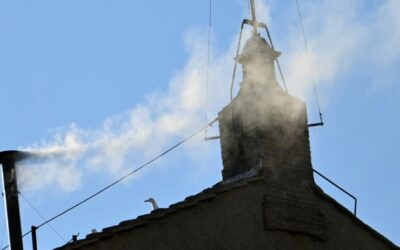
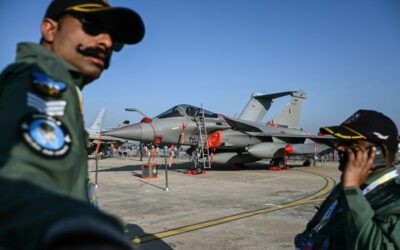


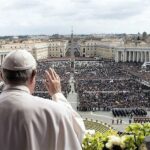

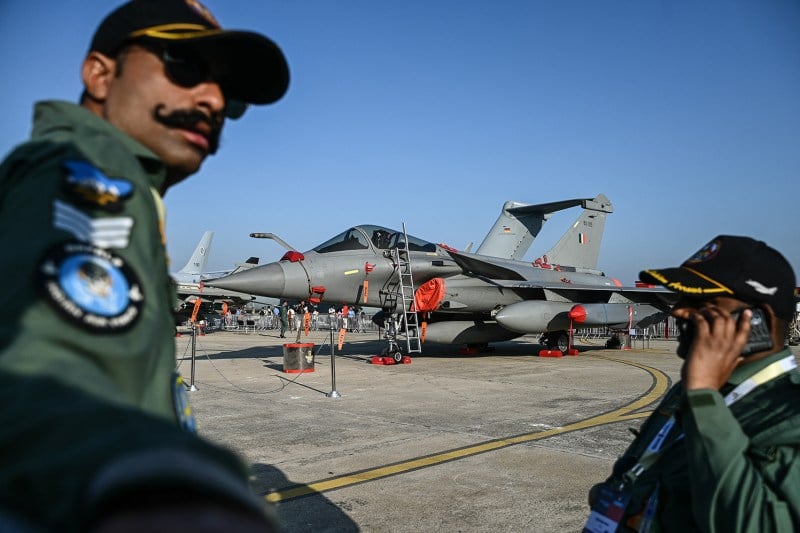
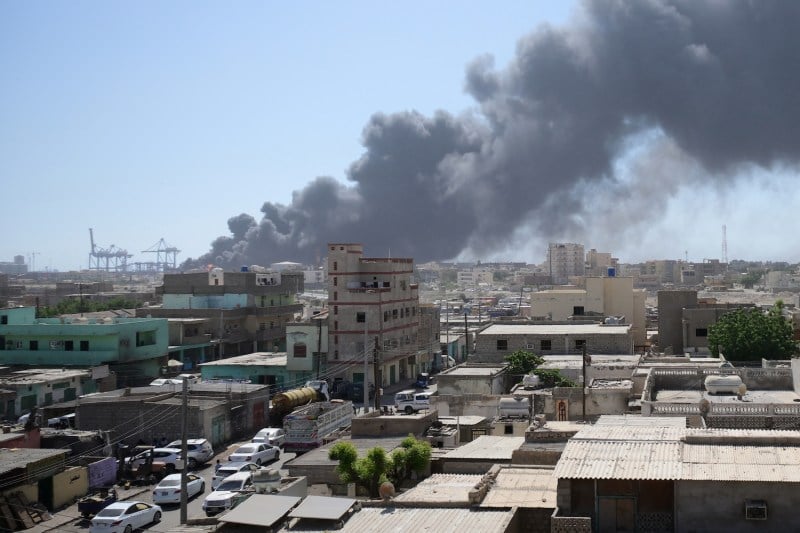

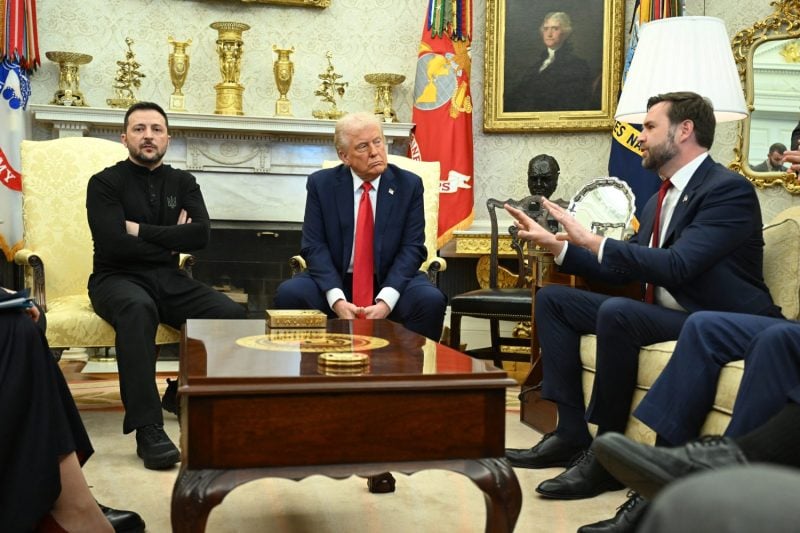
Join the Conversation
Commenting on this and other recent articles is just one benefit of a Foreign Policy subscription.
Already a subscriber?
.
Subscribe
Subscribe
View Comments
Join the Conversation
Join the conversation on this and other recent Foreign Policy articles when you subscribe now.
Subscribe
Subscribe
Not your account?
View Comments
Join the Conversation
Please follow our comment guidelines, stay on topic, and be civil, courteous, and respectful of others’ beliefs.
Change your username |
Log out
Change your username:
CANCEL
Confirm your username to get started.
The default username below has been generated using the first name and last initial on your FP subscriber account. Usernames may be updated at any time and must not contain inappropriate or offensive language.